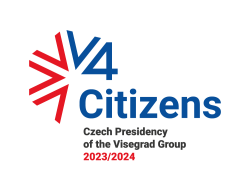
| Wed | Thu | Fri | Sat | Sun |
|---|---|---|---|---|
| 10 | 8 | 10 | 10 | 9 |
| Wed | Thu | Fri | Sat | Sun |
|---|---|---|---|---|
| 12 | 11 | 9 | 9 | 10 |
| Wed | Thu | Fri | Sat | Sun |
|---|---|---|---|---|
| 12 | 12 | 11 | 11 | 10 |
| Wed | Thu | Fri | Sat | Sun |
|---|---|---|---|---|
| 14 | 14 | 14 | 14 | 14 |
A Dream of an Ideal Democracy
One with the ability to put the country back on the track
Visegrád cooperation became a brand for solid regional co-operation that guarantees stability and good neighbourly relations. Despite the fact that the commitment to V4 oscillated, went through many “ups” and “downs”; despite the fact that it is far from being a compact political entity which would be able to adopt joint strategies, find common political instruments and to enforce common interests; despite these many failures, lost ambitions and cynical doubts, the V4 has survived to celebrate twenty-five years of existence.
Happy birthday! So, there must be something that binds us together, and it must be deep enough not to be destroyed during the critical low periods. Embedded values! But what values?
Democracy? For sure, the euphoria when the communist regimes collapsed was authentic and shared. But we all know that implementation of democracy is one thing and maintenance of a stable democratic regime which respects the rule of law, rights of minorities, fairness to all citizens etc., etc., is another.
The current look of the V4 shows that the path to a consolidated democracy is neither linear nor irreversible; moreover, citizen commitment to freedom and democracy varies across time and countries. What unifies us more is the idea of democracy. The dream about an ideal democracy which has the ability to put the country back on the right track again.
But let’s continue exploring – trust? The nations of the Central European region carry a huge historical burden from their common past. Interpretation of history often reveals that everyone feels they are owed something, and everybody did harm to someone else at some point.
On the other hand, the nations are unified by the closeness of their common destiny which sets the grounds for mutual trust. Based on surveys, we see that the Czechs and Slovaks share the strongest ties of confidence. This level of trust and above-standard relationship seemed to be the utopian dream until around the split of the Czechoslovak federation in 1992-1994. But recently the commonalties and the joint history represent a strong background for good relations –these two nations became the most amicable of divorced couples.
Poles have very balanced relations with the other three nations, and – of course – the most sensitive is the question of trust between Slovaks and Hungarians. However, many bridges have been built in recent years to overcome the historically conditioned distrust. Okay, but what about the world beyond Visegrád and its allies?
The challenge came in 2015 with the biggest refugee crises this part of Europe has ever faced. And another common ground has been found – the lack of solidarity with the other EU team-mates more affected by the migration flows, limited displays of humanity towards the culturally distant “others” and hypocrisy when it comes to excuses why we cannot help.
In spite of all the consequences these V4 positions may have, let us be optimistic (and romantic) – the shared idea of good democracy and mutual trust embedded in a common destiny will preserve the bonds.
Read the original text in Visegrad Insight.
This article has been automatically generated from the Visegrad Insight magazine website, a project funded by the International Visegrad Fund. The opinions expressed in this article do not necessarily have to represent the official position of the donor, the Visegrad Group, or the publisher (Res Publica Nowa).







